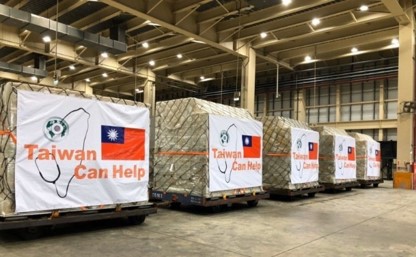Why do Haiti and Taiwan Maintain a Political Relationship?
Both countries have seen benefits from their political relationship over the past sixty-five years. Despite each country's unique foreign pressures and domestic dilemmas, both Haiti and Taiwan have maintained a mutually beneficial relationship. Haiti has seen gains from a political relationship with Taiwan in the form of humanitarian aid in the aftermath of the earthquake in 2010. The ROC deferred any loan payments that Haiti owed them and “sent a search and rescue team to Haiti to assist with disaster relief” (Chang, 6). Following the assassination of the Haitian president, Jovenel Moise, in 2021, relations between Haiti and Taiwan were briefly strained, but both countries were quick to reaffirm their devotion to maintaining their symbiotic relationship. Soon after the assassination, Taiwan’s Ministry of Foreign Affairs claims that “it will join hands with like-minded countries to assist Haitians in steering the Caribbean nation back to normal as quickly as possible,” (Chen, para. 5). Taiwan has taken great strides to sustain a political relationship with Haiti, so they have been increasingly conscious of the economic pull China has been accumulating over the past several decades. In order to decrease China’s chances of swaying Haiti to their side, Taiwan has pointedly offered financial aid to Haiti, “notably helping to upgrade its electricity grid [in 2020] and donating 280,000 face masks as part of pandemic relief,” (Dou and Chen, para. 10). By helping to assuage Haiti’s financial needs, Taiwan not only aids their diplomatic ally but also decreases the chances of China being able to use an economically motivated incentive to bring Haiti to their side.

"Taiwan Can Help" - in the face of the COVID-19 pandemic Taiwan works to help its allies
Due to China's continued interference with Taiwan's diplomatic relations, the ROC's democratic government is in desperate need to keep what few remaining allies it has. Taiwan is not unfamiliar with being diplomatically isolated. Following the United Nations General Assembly Resolution 2758 that passed in 1971, the People’s Republic of China was legitimized as the only representative of China, forcing the ROC to withdraw from the UN (“History”). The image below shows the steady decline of Taiwan’s diplomatic allies.
History of Taiwan's Foreign Relations
However, in the decades since the UN resolution, Taiwan has flourished into a self-sustaining, free democracy without the aid of extensive international relations. This has put Taiwan in a position where they are able to provide extensive support to those countries that remain their allies. Haiti has seen the benefits of this relationship, but why is maintaining diplomatic relations so important to Taiwan? In the long run, Taiwan wants to support a relationship in as many countries as possible because they want to leverage their diplomatic recognition “as evidence of Taiwan’s statehood, by which Taiwan’s de facto independence is legally protected from China’s interference,” (Kuo, para. 8). In accordance with this goal, the Haitian government has supported the ROC’s potential involvement in several UN and other international assemblies. The diplomatic relationship between Haiti and Taiwan has helped Taiwan gain more influence on the international stage, as well as provided Haiti with financial support in its development.
Radio Haiti Archive:
"President Jean-Bertrand Aristide welcomes an official visit by a delegation from Taiwan (Republic of China). He hopes the visit promotes economic solidarity, investment, and private-public sector cooperation."